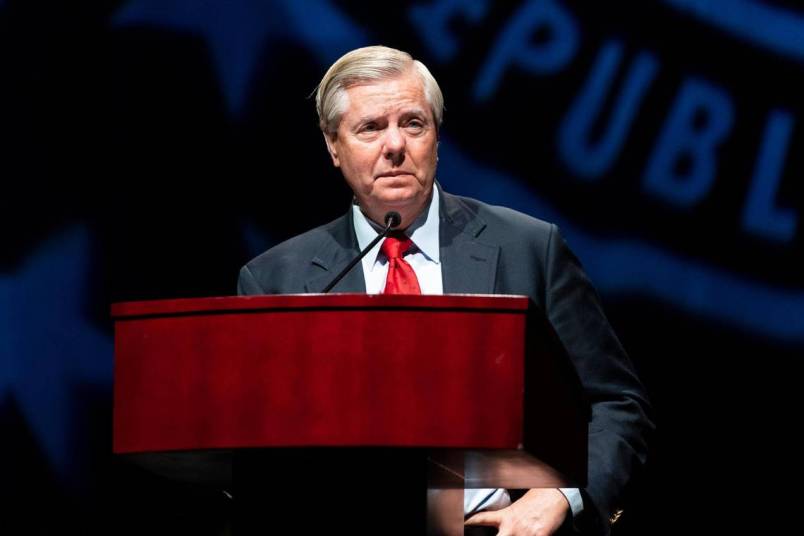A federal judge in Atlanta on Monday rejected Sen. Lindsey Graham’s (R-SC) attempt to quash a subpoena to testify before a special grand jury in Fulton County, investigating former President Trump and his allies’ efforts to subvert the 2020 election results in Georgia.
In a 22-page ruling, U.S. District Judge Leigh Martin May ruled that Fulton County district attorney Fani Willis demonstrated “extraordinary circumstances and a special need for Senator Graham’s testimony on issues relating to alleged attempts to influence or disrupt the lawful administration of Georgia’s 2020 elections.”
May said there are “considerable areas” of the grand jury’s probe that fall outside the protections of the Constitution’s Speech or Debate clause, an argument that Graham’s lawyers pushed to shield him from having to testify as a sitting member of Congress.
“The Speech or Debate Clause does not ‘prohibit inquiry into activities that are casually or incidentally related to legislative affairs,’ but instead offers protection only ‘against inquiry into acts that occur in the regular course of the legislative process and into the motivation for those acts,'” May wrote.
May said the Speech or Debate clause would not shield actions that are “political in nature rather than legislative,” which, she said, may include statements about the 2020 election issued outside of Congress, “efforts to ‘cajole’ or ‘exhort’ state election officials to change practices or alter election results” and coordination with the Trump campaign or other third parties related to post-election efforts in Georgia.
“Because the record must be more fully developed before the Court can address the applicability of the ‘Speech or Debate’ clause to specific questions or lines of inquiry, and because Senator Graham’s only request in removing the subpoena to this Court was to quash the subpoena in its entirety, the Case is REMANDED to the Superior Court of Fulton County for further proceedings,” May concluded in the ruling.
The federal judge’s rejection of Graham’s motion comes days after the Trump ally did not show up for his scheduled appearance at the Fulton County courthouse, following an agreement he reached with Willis last month to move his challenges to a district court in Georgia.
Graham is scheduled to appear as a witness to testify before the special grand jury on Aug. 23.
Willis, who is leading the special grand jury’s investigation, previously said in court filings that the grand jury wants to hear from Graham because of calls he made to Georgia Secretary of State Brad Raffensperger (R), who refused to comply with Trump’s demands about overturning results in the state. In Willis’ subpoena to Graham, the Fulton County district attorney cites at least one phone call where Graham allegedly requested that Raffensperger discard some legally cast ballots.
In Graham’s motion to quash the subpoena last month, his lawyers argued that his calls to Georgia officials fall under legislative activity, therefore his activities are protected under the Speech or Debate clause.
“Senator Graham did not inject himself into Georgia’s electoral process, and never tried to alter the outcome of any election. The conversation was about absentee ballots and Georgia’s procedures,” Graham’s attorneys wrote in a filing last month, stretching to argue that Graham’s communications with Georgia officials is “legislative activity falling under” his “fact-finding and oversight responsibility” as the then-Senate Judiciary Committee chair and as a sitting senator.



